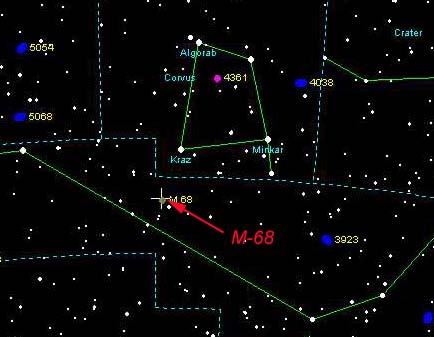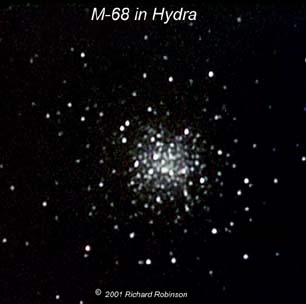|
|
|
|
M-68
is about 3.4 degrees below the magnitude 2.6 star Kraz in the constellation
Corvus. It is about 1/2 the diameter of M-13, the large globular
cluster in Hercules. It is also about two magnitudes dimmer, but
you can still see it in a small scope. I could see it clearly in
my 90 mm guide scope even under hazy skies. For a really good
view you should use a 8"-10" scope. However, it is far south and
will be difficult for you to see if you live at high northern latitudes.
Although about four hours further west than the giant red star Antares,
it is at about the same declination. If you can see Antares from
your location, you should be able to see M-68 about four hours earlier.
|
|
 |
Size: 11 arcmin Magnitude: 7.3 Magnitude Tip: 12.6 RA: 12h 39m 28.0s Dec: -26d 44m 36s |

